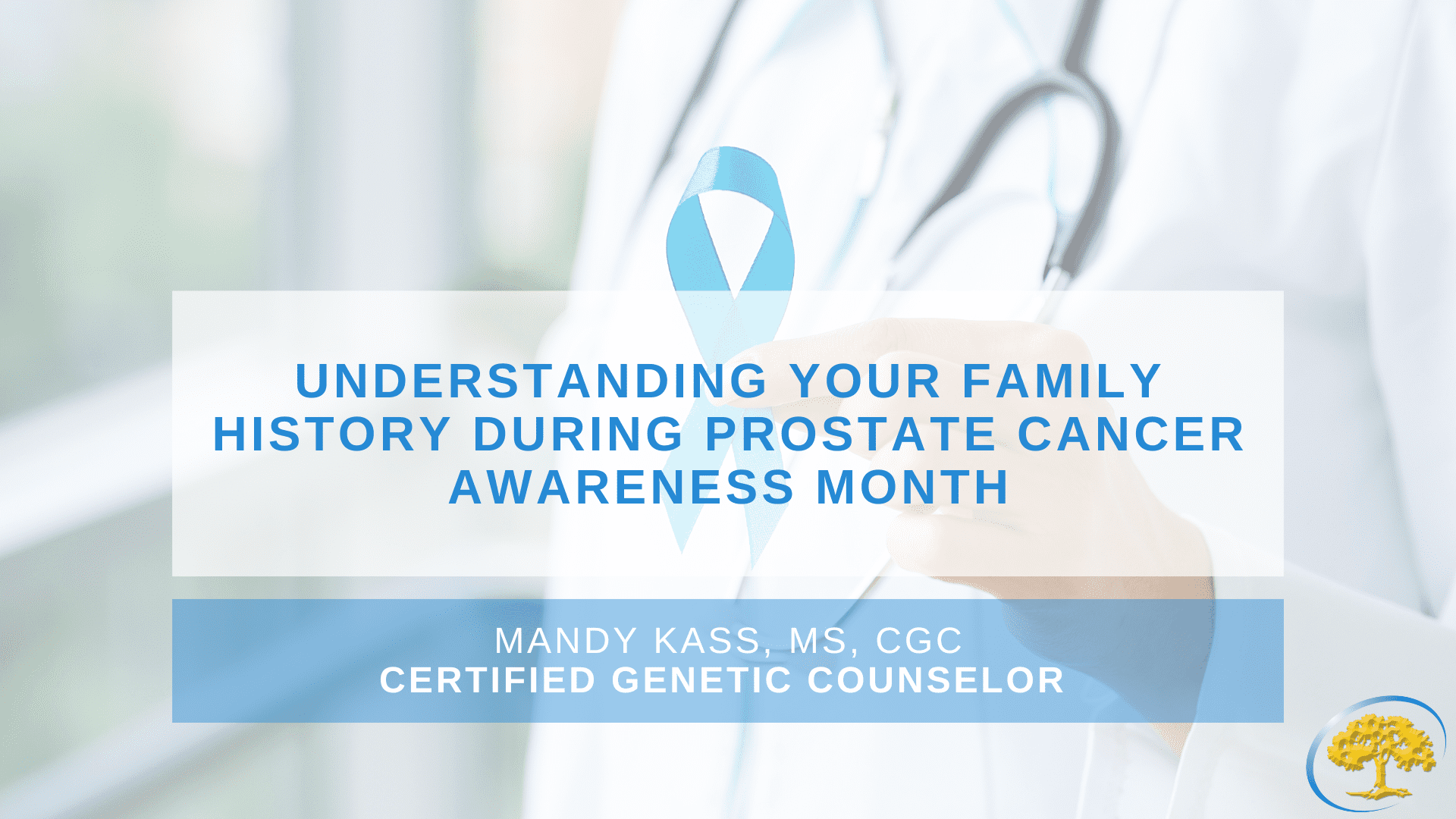
Posted 5 months ago
Understanding Your Family History During Prostate Cancer Awareness Month
September is Prostate Cancer Awareness Month – a time to shine a light on one of the most common cancers in men. While most prostate cancers happen by chance, about 10-15% are hereditary, meaning they run in families. As a genetic counselor, I often talk with men and their families about how their genes can affect their risk of developing prostate cancer. Knowing your family history is a powerful step toward early-detection and prevention.
Hereditary prostate cancer happens when a person inherits a gene change (mutation) that increases their risk of developing the disease. These gene changes are passed down from parent to child, and they can affect multiple generations. If you have a father, brother, or son who’s had prostate cancer – especially if they were diagnosed before age 55 – you may be at higher risk. Families with several relatives who’ve had prostate, breast, ovarian, or pancreatic cancer may also carry inherited gene mutations.
Some of the most well-known genes linked to hereditary prostate cancer are BRCA1 and BRCA2. You may have heard of these genes in connection with breast cancer, but they also increase the risk of prostate cancer. Another gene, called HOXB13, is more specifically linked to early-onset prostate cancer. Learning whether you carry one of these inherited mutations can help guide your screening options and inform your family members of their own risk.
Genetic testing is available for individuals with a strong personal or family history of prostate cancer. The testing is done through a blood or saliva sample and can provide helpful information for managing your health. If you test positive for a cancer-related gene mutation, you and your doctor can develop a plan that may include earlier and more frequent screenings, lifestyle changes, or discussions about prevention strategies.
This month, I encourage everyone to talk openly with family members about their health history. Even if you feel healthy now, understanding your genetic risk can help you make informed decisions for the future. And remember, you don’t have to do it alone.
Genetic counselors are here to help you understand your risk, talk through your options, and support you every step of the way. If you’re curious about whether genetic testing might be right for you or your family, consider asking your doctor for a referral to a genetic counselor. Together, we can use this knowledge to protect your health and empower future generations.
Mandy Kass, MS, CGC
Certified Genetic Counselor
 As a certified oncology genetic counselor, Mandy works with patients who have a personal and/or family history of cancer to assess their risk of having an inherited cancer predisposition. This information allows for the pursuit of early detection or possibly prevention of certain cancer types.
As a certified oncology genetic counselor, Mandy works with patients who have a personal and/or family history of cancer to assess their risk of having an inherited cancer predisposition. This information allows for the pursuit of early detection or possibly prevention of certain cancer types.
The ultimate goal of cancer genetic counseling is to empower patients to use their personal risk information to better inform treatment and management decisions and to educate family members on their possible cancer risks.
Mandy obtained her Bachelor of Science degree in Psychology from Arizona State University in 2013. She then went on to pursue her Master’s Degree in Human Genetics from Sarah Lawrence College and graduated in 2016. Her training in genetic counseling included clinical rotations at several locations throughout New York City, including Columbia University Medical Center, Mount Sinai Beth Israel, and Bellevue Hospital.
Prior to pursuing her graduate degree, Mandy worked for the National Suicide Prevention Lifeline. She is also a member of the National Society of Genetic Counselors and of the Cancer Special Interest Group. Outside of work, Mandy enjoys exploring Arizona, traveling, and spending time with her family, friends, and two golden retrievers.
She is happy to be part of Ironwood Cancer & Research Centers and to manage a genetic counseling department based on individualized care, patient education, and supportive guidance.
